#beersheba
Text
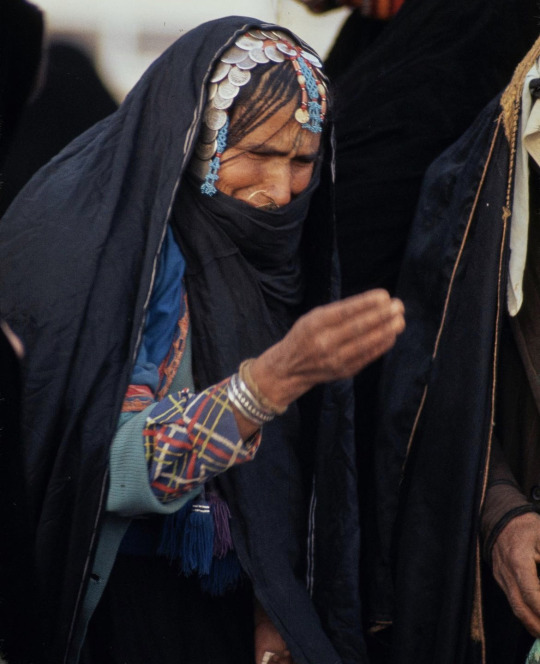


Bedouin Market in Bir Seb’a - Photos of Palestinians at home and in the diaspora by National Geographic foreign editorial staff writer and photographer Thomas Abercrombie (1974-1975).
#palestine#west asia#middle east#levant#palestinian culture#vintage photography#asia#palestine photography#bir seb’a#Beersheba#Bedouin#Bedouin Palestinians
385 notes
·
View notes
Text

Orot Cinema
Beersheba, Israel
Architect-Zeev Rechter
67 notes
·
View notes
Text


Analysis from Ayman Nobani, and wounded IOF bastards
#free gaza#free palestine#gaza strip#irish solidarity with palestine#palestine#gaza#news on gaza#al jazeera#boycott israel#israel#Ayman Nobani#Analysis#iof terrorism#beersheba#Jerusalem
19 notes
·
View notes
Text

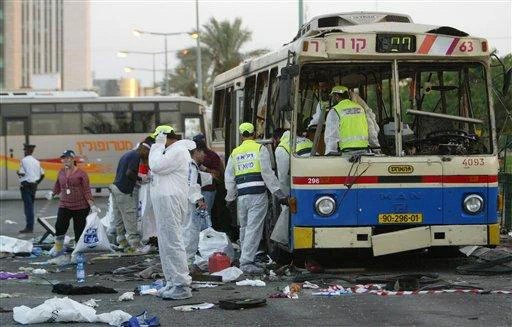
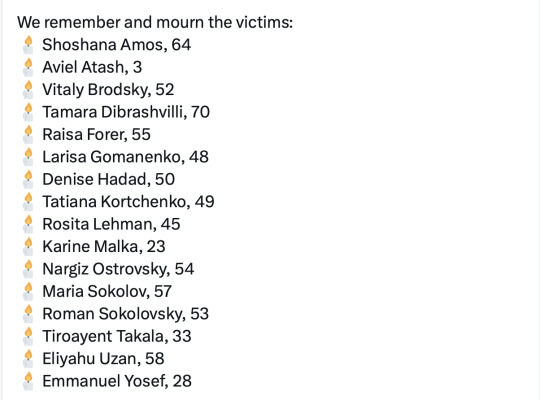
19 notes
·
View notes
Text

October 31st is still remembered by some in Australia for one of the last successful cavalry charges in the history of warfare, not for something called halloween.
" On October 31, 1917, the 4th Light Horse Brigade of Australia -- 500 riders strong -- was assembled four miles outside of the town of Beersheba (a city now part of Israel but then a southern outpost of the Ottoman Empire.) Across four miles of burning Sinai desert several thousand Turks were entrenched. The Australians had already ridden 170 miles to join Allied forces, mostly British. The Allies were essentially pinned down, forced to stay out of the three-mile range of the Turkish guns.
The 4th Light Horse was commanded by Brigadier-General William Grant, who was shocked to find the Allies were out of water. The horses in his cavalry were so dehydrated their lips cracked and bled. Somewhere around noon that day he looked across the desert and made a decision that even he thought was suicidal. But his horses were dying.
Grant mounted his horse, assembled his cavalry (scattered around so they would not make an easy target for German planes) and at 4:30PM rode to the front, drew what was then the world's longest bayonet, turned toward Beersheba and yelled "CHARGE !!!" "
Read the rest of this account here - https://www.colindangaard.com/australian-cavalry-charge
9 notes
·
View notes
Text
youtube
Abraham lived at Beersheba & this would have been one of his water sources the underground cistern built by the Canaanites. There is another well outside of the city. It is known as Abraham’s’ Well because he and his descendants used it.
#Beersheba#Beersheva#AbrahamsWell#Water#WaterCistern#Canannite#TelBeersheba#Bible#AbrahamIssacandJacob#Issac#Jacob#Negev#Israel#visitisrael#holyland#bibletravel#ChristianTravel#BiblicalTravel#NegevDesert#Desert#SouthIsrael#Patriachs#Genesis#DiscoverIsrael#Jesus#God#ByFaithMedia#ByFaith#Backholer#MaryBackholer
3 notes
·
View notes
Text
Genesis 46:1-3 - Part 1 - JACOB AND A BRIDGE TO THE UNKNOWN
Jacob is now an old man. He knows that the land of Canaan was promised to his descendants and yet he is about to move to Egypt. He has lived in this promised land for a long time now and no doubt leaving it has given him reason to pause and reflect.
Bridge into the Unknown © Created by Ross Cochrane using NightCafe AI, Unsplash and PaintDotNet
Genesis 46:1-3 – Part 1 – JACOB AND A BRIDGE TO THE UNKNOWN
Genesis 46:1 says, “So Jacob set out for Egypt with all his possessions. And when he came to Beersheba, he offered sacrifices to the God of his father, Isaac.”
Recently, my wife and I made the decision to retire. We believe it to be the…

View On WordPress
0 notes
Text
Genesis 46: God Tells Jacob to Go Into Egypt
1 So Israel set out with all that was his, and when he reached Beersheba, he offered sacrifices to the God of his father Isaac.
2 And God spoke to Israel in a vision at night and said, “Jacob! Jacob!”
“Here I am,” he replied.
3 “I am God, the God of your father,” he said. “Do not be afraid to go down to Egypt, for I will make you into a great nation there.
4 I will go down to Egypt with you, and I will surely bring you back again. And Joseph’s own hand will close your eyes.”
5 Then Jacob left Beersheba, and Israel’s sons took their father Jacob and their children and their wives in the carts that Pharaoh had sent to transport him.
6 So Jacob and all his offspring went to Egypt, taking with them their livestock and the possessions they had acquired in Canaan.
7 Jacob brought with him to Egypt his sons and grandsons and his daughters and granddaughters—all his offspring.
8 These are the names of the sons of Israel (Jacob and his descendants) who went to Egypt:
Reuben the firstborn of Jacob.
9 The sons of Reuben:
Hanok, Pallu, Hezron and Karmi.
10 The sons of Simeon:
Jemuel, Jamin, Ohad, Jakin, Zohar and Shaul the son of a Canaanite woman.
11 The sons of Levi:
Gershon, Kohath and Merari.
12 The sons of Judah:
Er, Onan, Shelah, Perez and Zerah (but Er and Onan had died in the land of Canaan).
The sons of Perez:
Hezron and Hamul.
13 The sons of Issachar:
Tola, Puah, Jashub and Shimron.
14 The sons of Zebulun:
Sered, Elon and Jahleel.
15 These were the sons Leah bore to Jacob in Paddan Aram, besides his daughter Dinah. These sons and daughters of his were thirty-three in all.
16 The sons of Gad:
Zephon, Haggi, Shuni, Ezbon, Eri, Arodi and Areli.
17 The sons of Asher:
Imnah, Ishvah, Ishvi and Beriah.
Their sister was Serah.
The sons of Beriah:
Heber and Malkiel.
18 These were the children born to Jacob by Zilpah, whom Laban had given to his daughter Leah—sixteen in all.
19 The sons of Jacob’s wife Rachel:
Joseph and Benjamin.
20 In Egypt, Manasseh and Ephraim were born to Joseph by Asenath daughter of Potiphera, priest of On.
21 The sons of Benjamin:
Bela, Beker, Ashbel, Gera, Naaman, Ehi, Rosh, Muppim, Huppim and Ard.
22 These were the sons of Rachel who were born to Jacob—fourteen in all.
23 The son of Dan:
Hushim.
24 The sons of Naphtali:
Jahziel, Guni, Jezer and Shillem.
25 These were the sons born to Jacob by Bilhah, whom Laban had given to his daughter Rachel—seven in all.
26 All those who went to Egypt with Jacob—those who were his direct descendants, not counting his sons’ wives—numbered sixty-six persons.
27 With the two sons who had been born to Joseph in Egypt, the members of Jacob’s family, which went to Egypt, were seventy in all.
28 Now Jacob sent Judah ahead of him to Joseph to get directions to Goshen. When they arrived in the region of Goshen,
29 Joseph had his chariot made ready and went to Goshen to meet his father Israel. As soon as Joseph appeared before him, he threw his arms around his father and wept for a long time.
30 Israel said to Joseph, “Now I am ready to die, since I have seen for myself that you are still alive.”
31 Then Joseph said to his brothers and to his father’s household, “I will go up and speak to Pharaoh and will say to him, ‘My brothers and my father’s household, who were living in the land of Canaan, have come to me.
32 The men are shepherds; they tend livestock, and they have brought along their flocks and herds and everything they own.’
33 When Pharaoh calls you in and asks, ‘What is your occupation?’
34 you should answer, ‘Your servants have tended livestock from our boyhood on, just as our fathers did.’ Then you will be allowed to settle in the region of Goshen, for all shepherds are detestable to the Egyptians.”
#Genesis ch.46#Lord God Jehovah#Holy Bible#Command#Jacob#Israel#Descedants#Hebrews#Travel#Egypt#Leah#Rachel#Children#Lineage#Livestock#Beersheba#Goshen#Reunite#Pharoah#Household#Canaan#Shepherds#Divine#Protection
1 note
·
View note
Text
Amos 5:5 Do no seek Bethel (NET)
Amos 5:5 Do no seek Bethel (NET)
Amos 5:5 New English Translation | Do not seek Bethel! Do not visit Gilgal! Do not journey down to Beer Sheba! For the people of Gilgal will certainly be carried into exile; and Bethel will become a place where disaster abounds.”

View On WordPress
0 notes
Text

BOURKOU' FACE VEIL :
Traditionally worn by Bedouin women from the Khan Yunis, Rafah and Beer Shebba areas. The band that goes across the forehead is usually hand-woven and embroidered in silk, sometimes decorated with silver coins. The veil itself is made of transparent crepe, heavily adorned with Turkish coins. It is tied around the head with braided wool cord. From the temples hang strands of colored glass beads and a variety of stones followed by silver chains with pendants, zinja. The veil shown here are forty to fifty years old. A less eldborate face veil is first worn by a girl when she reaches puberty. The dowry coins are added after her engagement. Maidens and married women generally did not wear a veil when they went about their daily routines in camp. They put it on when leaving the camp or when receiving unrelated males in.
#palestine#west asia#middle east#levant#asia#palestinian culture#traditional jewelry#traditional clothing#folk clothing#Beersheba#Bedouin Palestinians#Bedouin culture
225 notes
·
View notes
Text
A few months back I listened to the Empire podcast episode on Sykes-Picot and they talked about how a lot of British officials only knew about the Middle East from the Bible, Alexander the Great, and the Anabasis. The French also knew about Outremer and the Crusader States but that's about it.
I was reminded of this when I read the WWI official history of the Battle of Beersheba. To explain why the village was taken, Henry Gullett says that
As the Anzacs first saw it from the hills to the south-east at sunrise on the morning of the 31st, it had, except for its new mosque built by the Germans, the appearance of a struggling township on the pastoral country in Australia. To the dusty ring of mounted campaigners it promised no prize in comfortable quarters or in foodstuffs. But it contained that which was still more essential and coveted, for the village was rich in springs of good water.
Perhaps never since the far-off days of Abraham had the water in the old wells of the patriarchs been so needed by parched men riding in from the southern desert.
And I get that he's being poetic here, but really? "Has anything happened here in the past few thousand years? We Just Don't Know."
Like from my brief research, at the very least the Arabs captured Beersheba from the Romans and the Turks captured it from the Mamluks for literally the exact same reason. Henry, mate, we didn't invent attacking Beersheba, we're not the first to discover there's water there.
4 notes
·
View notes
Text
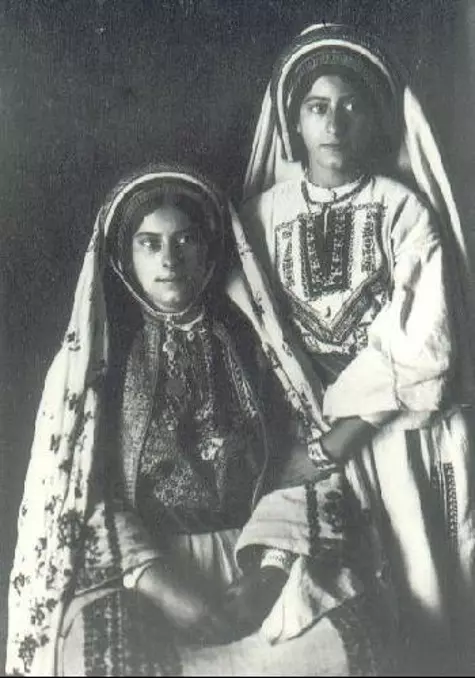
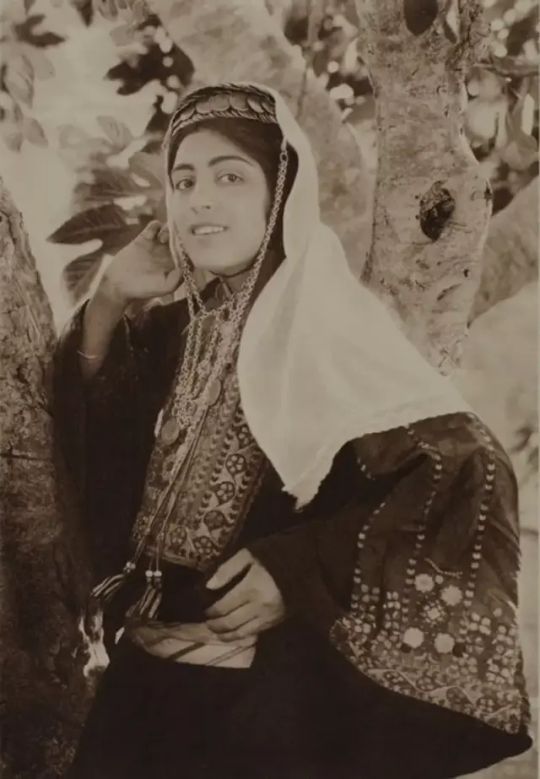
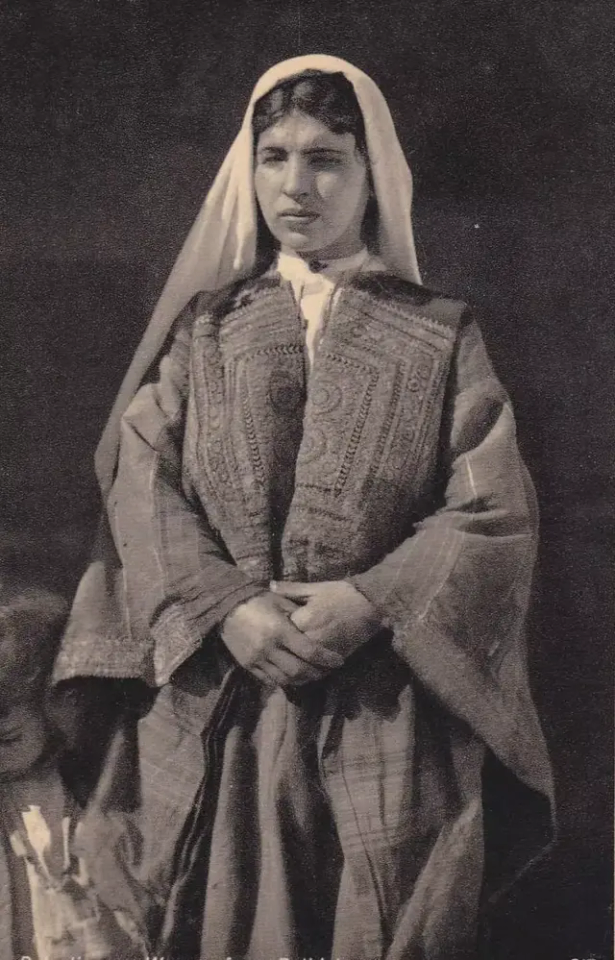
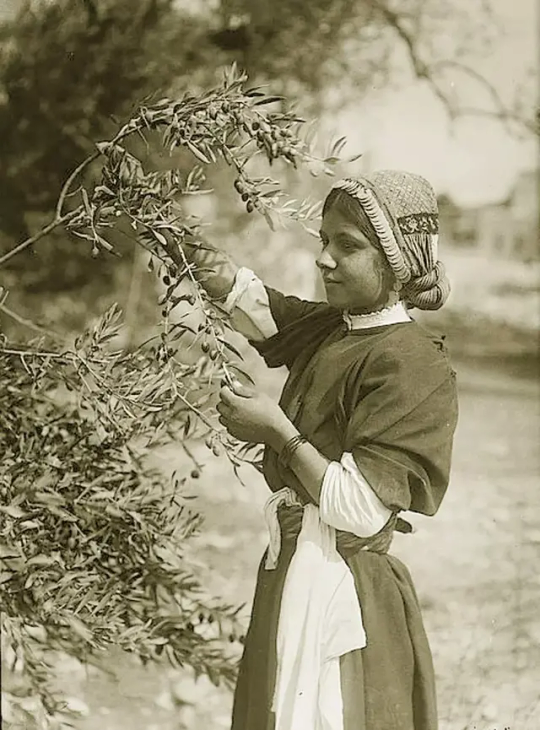
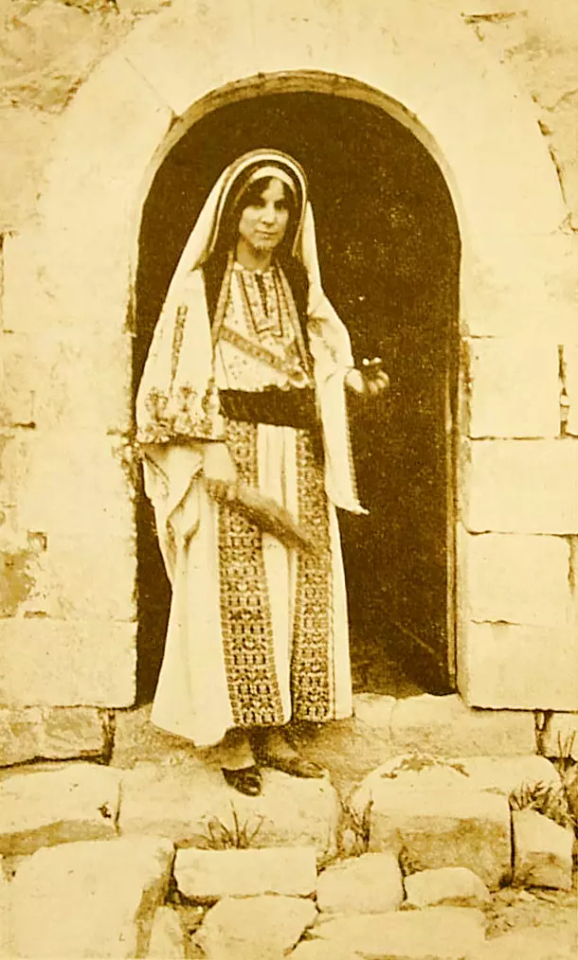
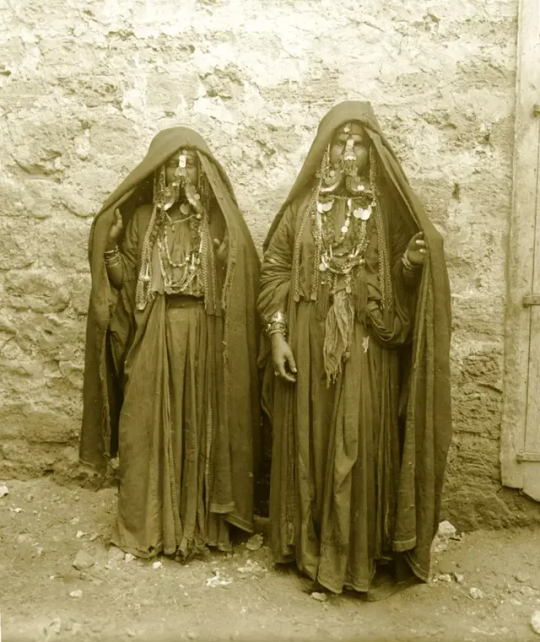
some examples of palestinian women's dress c.1900-1920s, primarily ramallah and bethlehem. sourced from palestine remembered.
captions t-b, l-r:
ramallah women in traditional costume, c.1920s
woman from bethlehem, 1927
woman from bethlehem, c.1900-1910s
woman picking olives from tree, ramallah area, early 20th century
ramallah woman at gate, early 20th century
two bedouin women from beersheba-gaza-jaffa region, early 20th century
4K notes
·
View notes
Text
Update post:
Yesterday, there were no less than two terrorist attacks against Israeli civilians, one in the morning, and one in the evening.
The first one happened in Beersheba, where the terrorist stabbed and injured two people before being neutralized. The terrorist was an Israeli Bedouin, who had been convicted of drug-related criminal charges. The prosecution asked for his arrest, but the court decided to be lenient, to aid in his rehabilitation, and instead only sentenced him to community service. He was due to start in two weeks, but instead he chose yesterday to attack innocent civilians.

The second terrorist attack took place in Gan Yavne. A Palestinian man, who used to have a work permit in Israel, but lost it and remained here illegally, carried out the attack. The Palestinian terrorist started stabbing people at a gym and then at a nearby cafe, wounding 3 people, all of them originally determined to be in serious condition, one is a teenager, the other two are reported to have life threatening head injuries. The terrorist was 19 years old, and he was neutralized at the scene. In investigating how he managed to stay inside Israel illegally after his work permit had expired, the police has arrested two people so far.
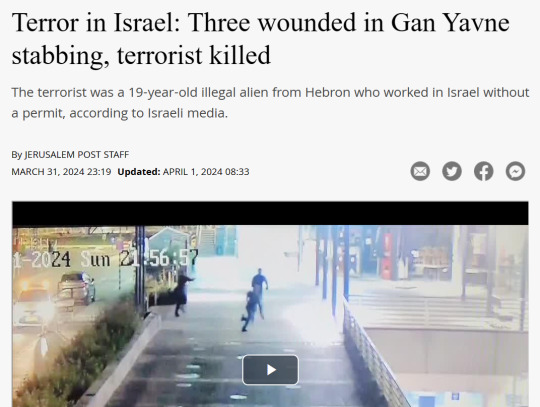
Israel has wrapped up its second operation at the Shifa hospital in Gaza City, with another soldier pronounced dead (20 years old Nada Cohen), bringing the IDF fatalities in the Gaza ground operation so far to 256, and the total number of killed Israeli soldiers in this war, including during the Hamas massacre (reminder that some of those soldiers were girls serving in non-combative posts, without combat training or even a weapon, and were slain while still in their pajamas) to 600.

The end of one operation in a Gaza hospital doesn't mean that's the end of Hamas abusing medical and humanitarian facilities, so there are and will be more such operations. That's why I'm also sharing this reminder that nothing is sacred or even just... off limits to Hamas, who moved kidnapped civilians in ambulances, as one of the released hostages testified.

I mentioned in a post expressing my frustration over foreigners' ignorance over the conflict, which doesn't stop them from acting like they know better than the people actually living it, the Hamas-Fatah "civil war," which erupted in 2007, when Hamas killed Fatah members in Gaza and took over the place. The two Palestinian factions have tried reconciliation several times over the years, but it never lasted long. Israel's war in Gaza against Hamas and its fellow terrorists organizations is not over yet, but already there's signs of that tension. This def bodes well for Palestinians if Hamas survives this war.
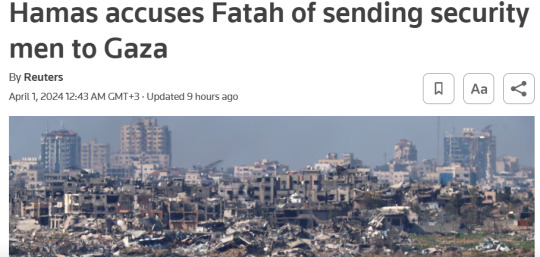
A city council meeting in California, which dealt with Holocaust remembrance, ended up being the scene of some despicable displays of antisemitism in its anti-Zionist form. IDK what was most distressing to hear about, the way they screamed "Lies! Lies!"' at a Holocaust survivor, or that they took and threw to the ground the phone of a Jewish man who came to speak about his grandma who had survived the Holocaust, or that they mocked a mother speaking of her child being harassed at school to the point he doesn't wanna be a Jew, because he doesn't want to be hated... Maybe that they made my friend, who attended the meeting, cry on what was supposed to be a very special day. I saw coverage on Israeli TV of the city council, which both told me how bad it was, if of all things, that's what they're talking about, and at the same time, it was nothing like hearing about it from her. So I'm glad that she shared some of her own impressions about this ugly demonstration of hatred (I'm also scheduling her post for a reblog). I just hope Jews all over the world know that we here in Israel care about you, we love you, we are standing by your side, and we wish we could do more for you. <3
Speaking of antisemitism, and an inability to recognize it as such, to call it out and condemn it, here's some recent examples from around the world. In Spain, the locals went out for an Easter drink, a tradition called, "to kill the Jews," but insisted it's not racist. Attacking and even killing Jews actually was customary in Europe on Christian holidays such as Christmas and Easter. In fact, this specific nickname is derived from those old attacks.

In London, a policeman insisted that swastikas being displayed at an anti-Israel protest were not antisemitic, and should be taken "in context," despite admitting that a symbol that's abusive or would cause public distress would fall under his jurisdiction to act against.
youtube
In the Netherlands, a single mom of a Jewish girl was attacked for the daughter's choices (she decided to move to Israel and has served in the Israeli army) both at home and at her workplace, a hospital. The mother was so rattled after the attack at her home, that she wouldn't stay there. A Jewish hotel owner offered her a free stay at his hotel. In an interview with an Israeli reporter, the mom said she's considering moving to Israel, too (source in Hebrew).

This is 32 years old Celine ben David Nagar.
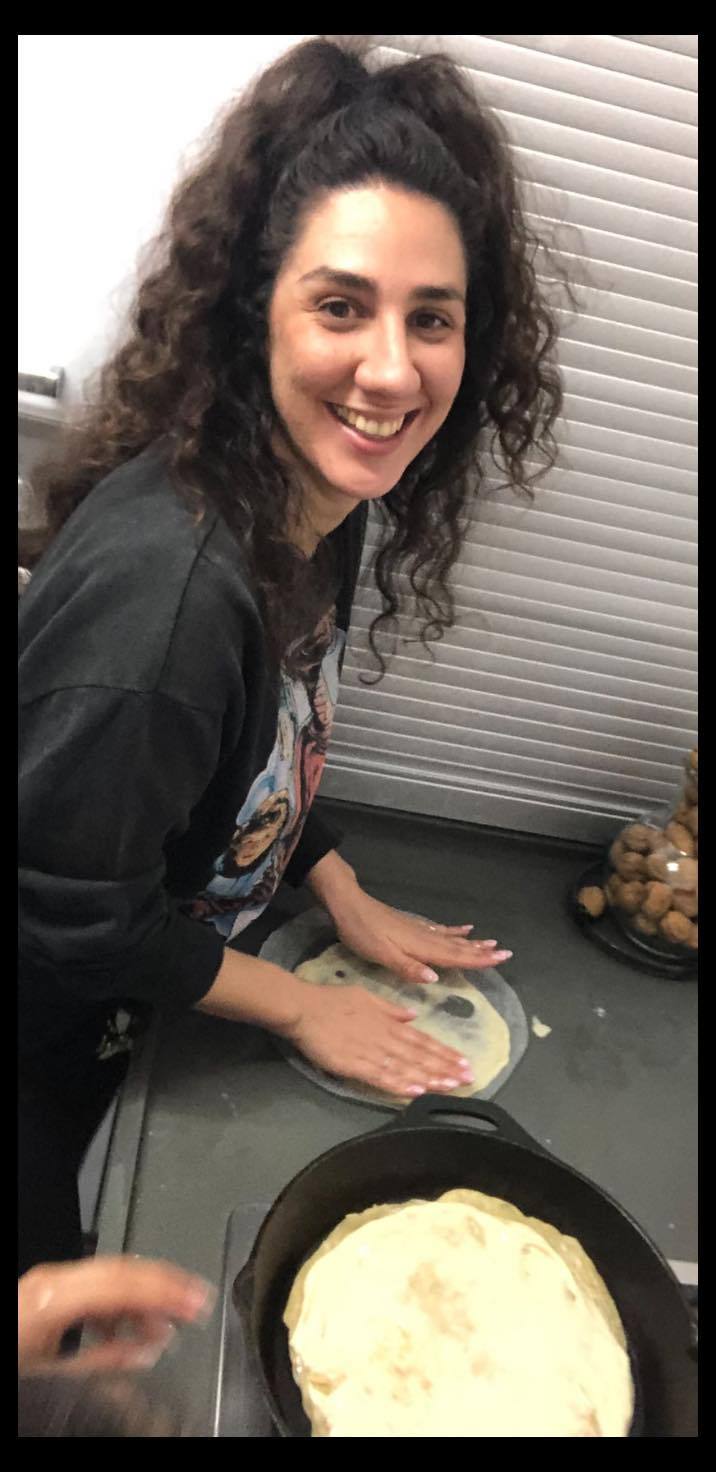
She worked as an office manager at a law firm, was married to Iddo, and they had a 6 months old baby together. On Oct 7, Celine was on her way with a friend to the Nova music festival, but they never made it there. The Hamas rocket attack started first. For 10 days, she was considered missing, and it took a while, but eventually they found her body. While her fate was still unknown, two days after the massacre, Iddo went on TV and talked about the fact that Celine was still breastfeeding. Following the interview, hundreds of Israel women volunteered to donate their mother's milk to the little baby girl. At Celine's funeral, Iddo asked said goodbye to his wife, and asked hr to watch over him and little Eli from above.
May her memory be a blessing.
(for all of my updates and ask replies regarding Israel, click here)
#israel#antisemitism#israeli#israel news#israel under attack#israel under fire#terrorism#anti terrorism#hamas#antisemitic#antisemites#jews#jew#judaism#jumblr#frumblr#jewish#israelunderattack
125 notes
·
View notes
Text
youtube
After wandering through the deserts, Abraham & his children lived in Beersheba & made a covenant with the king. This was Abraham’s hometown where he pondered the call & destiny that God had for his descendants, the people of Israel.
#WalktheBible#Beersheba#Beersheva#TelBeersheba#Bible#Abraham#Issac#Jacob#Negev#Israel#visitisrael#holyland#bibletravel#ChristianTravel#BiblicalTravel#NegevDesert#Desert#SouthIsrael#Patriachs#Genesis#DiscoverIsrael#israeloftheday#IsraelTravel#Jesus#God#LordJesus#christiantraveller#Pilgrimage#WalkIsrael#Youtube
2 notes
·
View notes
Text
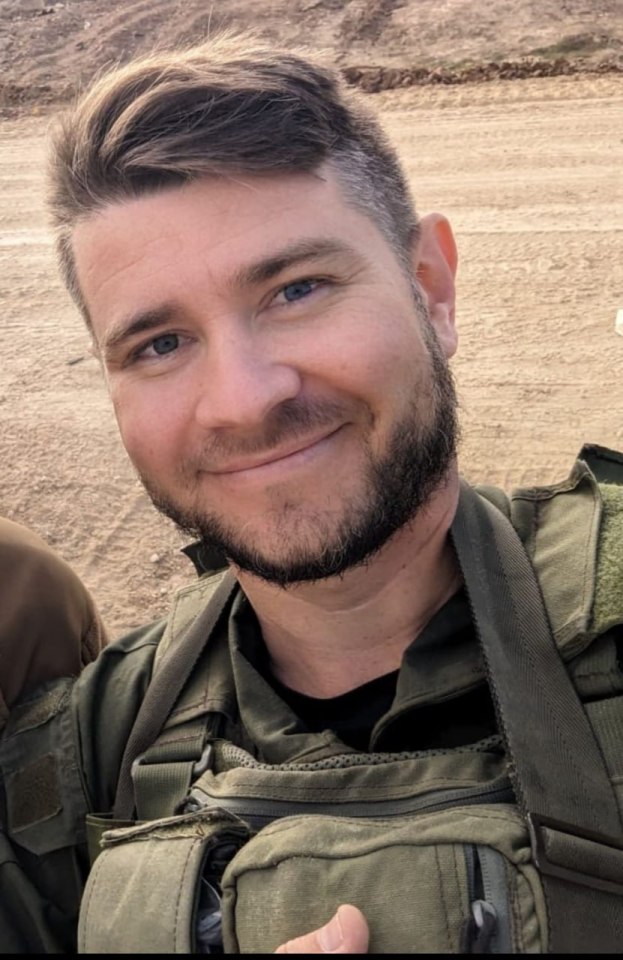
The IDF announces the death of a soldier killed during fighting in the southern Gaza Strip yesterday, bringing the toll of slain troops in the ground offensive against Hamas to 246.
He is named as Sgt. Maj. (res.) Dennis Yekimov, 33, of the Bislamach Brigade's 17th Battalion, from Beersheba.
May his memory be a blessing.
54 notes
·
View notes
